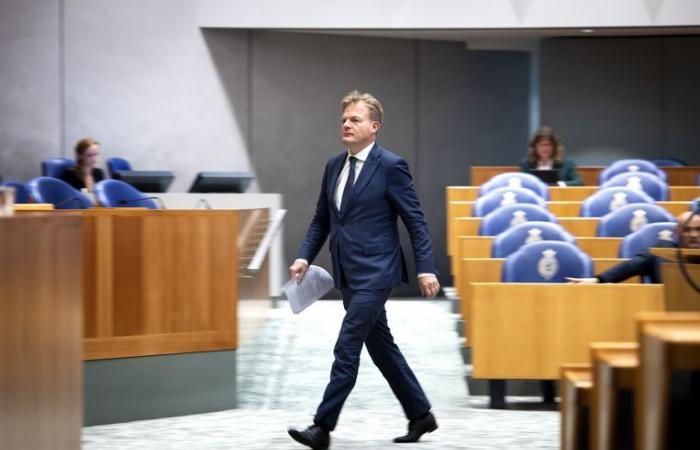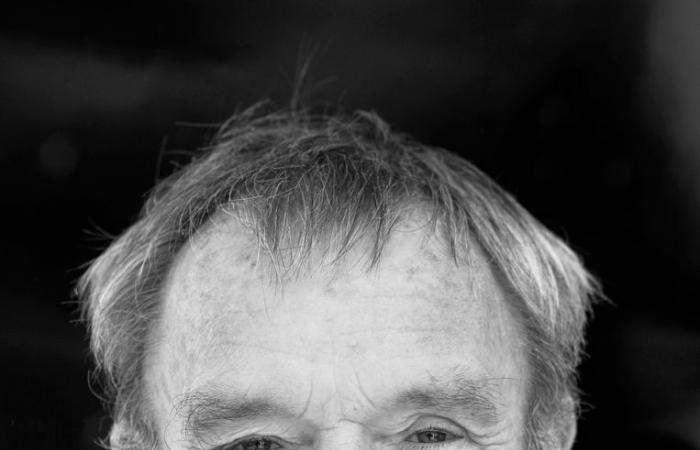Will 2023 be the year of Pieter Omtzigt? It is true that the parliamentary elections – barring political calamities – are only two years later, but this year he will already have to tap into his great electoral potential in order to win the thirty seats that are now predicted for him in 2025 and thus become the largest party in the Netherlands. A Party Omtzig? No, list-Omtzigt will suffice: it’s about him. And that will definitely change the face of politics.
D66 founder Hans van Mierlo already analyzed thirty years ago that voters are voting less and less for parties and more and more for individuals. You choose a politician as you choose a friend, he said, not for what he promises but for what he is. This trend has continued vigorously ever since. In 1995, Prime Minister and PvdA leader Wim Kok shook off the ideological feathers of socialism from himself and his party; a few years later, a resounding election success was achieved (26 seats at once) by a ‘list’ without any ideology, but based on soul affinity with only one person: Pim Fortuyn.
Now, the person of the party leader also used to play a role in elections: in the 1930s many voted for the Anti-Revolutionary Party to show support for Hendrik Colijn, in the 1950s for the PvdA because they wanted Willem Drees at the helm. (single: ‘Give Drees your confidence’). But it was always a mixture of party programs and personality.
Fortuyn, however, hardly had a coherent political programme, you voted for him because of who he was. That also applied to Geert Wilders, who did organize a party but immediately sidelined it: the PVV is Wilders. After him, Baudet showed how risky having a party for a popular list leader can indeed be: you only get a lot of fun with it.
No party needed
Omtzigt’s reputation as a member of parliament is based on the benefits affair that he and his colleague Renske Leijten tackled like a true tribune of the people, fearless and stubborn.
The fact that he and not she is now going to claim the bonus in terms of voter favor, undoubtedly has to do with the fact that she, and not he, is still part of a party as a loyal paladin, the moribund SP. He, on the other hand, narrowly lost the leadership election to Hugo de Jonge, after which he split from the CDA. Message: I don’t even need that party.
Programmatically, the political parties are increasingly eroded. In that sense, Wim Kok was prophetic. Can you say in three sentences what the PvdA stands for? Or the CDA? The VVD is essentially no more than a party that translates opinion polls into policy. On balance, the only thing that matters is the popularity of the party leader.
Blank page
A political group is now manifesting itself that, under the meaningless name of ‘Alliance’, wants to interpret Omtzigt’s ideas. They are CDA members who are concerned about the social image of their party and who like to echo Omtzigt that a ‘new social contract’ must be drawn up. What that means is unclear, except that it is Omtzigt who must effect such a contract.
Omtzigt himself refrains from any comment on this new formation for the time being and that is very smart. If the Alliance succeeds in the parliamentary elections in March, Omtzigt can build on that. And if not, he better quietly distance himself from it because he never engaged with it anyway.
Ideologically, Omtzigt is a blank slate. He started as a social right, fierce fighter against the Bulgarian fraud, remember? As a purebred Tukker, he advocates a regional electoral system and, above all, tighter control of power. About his book A new social contract) wrote Fidelity that ‘it reads like a promise that changes are coming’. It couldn’t be more vague and non-committal.
If this year brings its breakthrough, it will be a final farewell to the old politics, in the sense that programs no longer matter. That it is about who you vote for and not what you want to achieve with it in the sense of social reform. That sounds old-fashioned, like a nostalgia for the time when politics was still about our common future instead of bullies. And that is it.
John Jansen van Galen, journalist and publicist
Tags: Omtzigt convert reputation peoples tribune electoral gains



